
Piyush

Referral programs have become a cornerstone of modern marketing strategies, particularly for eCommerce businesses. A referral program is an incentive structure for your customers to share about your products and services for rewards. It could be any reward- store credits, cash, free trips, free consultations, additional perks, exclusive access, free products, etc. It is up to the business to decide.
Ecommerce stores have managed to reduce their customer acquisition costs by employing referral programs. Since companies are only paying for performance (aka referrals), there is no loss.
Referrals are extremely powerful because people believe other people like themselves when they suggest something. According to Neilsen’s study, more than 92% of people trust the recommendations of friends and families. That’s precisely why social proof, positive comments on forums, customer testimonials, and reviews play a huge role in people buying from you.
Table of Contents:
Referral programs are a strategic marketing tool used by businesses to leverage their existing customers to acquire new customers. In simple terms, a referral program encourages and rewards customers for referring to their friends, family, and acquaintances to the business. These programs often offer incentives such as discounts, cash rewards, or freebies to both the referrer and the referee, making it a win-win situation for all parties involved.
Referral programs are built on the principle of trust and the power of word-of-mouth marketing. People tend to trust recommendations from friends and family more than traditional advertising, making referral programs an effective way to build a loyal customer base and drive sales.
To earn referrals, it’s essential to offer products or services that meet customer needs while delivering excellent customer service. Your customers should be so satisfied with their experience that they are eager to recommend your business to others. High-quality products and exceptional service create a strong foundation for customer satisfaction and loyalty.
Engaging with customers by listening to their questions and concerns is crucial. By understanding and addressing their needs, you not only improve their experience but also build trust and rapport. This connection increases the likelihood that they will participate in your referral program and spread the word about your business.
Even happy customers might not engage in word-of-mouth marketing without additional motivation. This is why referral programs are necessary. Offering tangible incentives for both the referrer and the referee provides that extra push for customers to take action. These incentives could be in the form of discounts, cash rewards, free products, or exclusive offers.

Referral programs can significantly benefit eCommerce businesses by leveraging word-of-mouth marketing and incentivizing customers to promote the business. Here are some key benefits:
Referral programs are a highly cost-effective strategy for acquiring new customers by leveraging the networks of existing customers. Personal recommendations from friends and family significantly enhance trust and increase the likelihood of purchase, as people tend to value the opinions of those they know over traditional advertising.
By automating the referral process, referral program software further optimizes this approach. It simplifies the process for satisfied customers to refer their friends and family, broadening the program’s reach and boosting the chances that new prospects will trust the recommendation and make a purchase. This method capitalizes on the inherent trust in personal relationships, making it a powerful tool for customer acquisition.
Offering rewards for referrals keeps customers engaged and loyal to the brand, fostering a sense of community. Customers who feel valued and appreciated are more likely to stick around. Referral incentives can include discounts, free products, or exclusive perks, which encourage customers to continue shopping with the business and remain active participants in the referral program.
Referred customers often have a higher lifetime value, and participating customers may spend more to reach referral rewards. Customers who are referred tend to have a built-in trust factor, making them more likely to become loyal and repeat buyers. Additionally, existing customers aiming to achieve referral milestones may increase their spending to unlock rewards, thereby boosting overall revenue.
Referral programs provide valuable data on customer behavior and preferences, aiding in the refinement of marketing strategies and products. By tracking referral sources, businesses can identify their most influential customers and understand which products or services are most appealing. This information can guide future marketing efforts and product development to better meet customer needs.
A well-implemented referral program can serve as a powerful ecommerce strategy, setting a business apart from competitors and bolstering its reputation through enhanced brand advocacy. Distinctive and appealing referral initiatives can effectively distinguish a business within a competitive marketplace. By incentivizing customers to refer others, they essentially become brand ambassadors, contributing significantly to the establishment of a positive and distinctive brand identity.
Referral programs can grow organically with the business, creating a self-sustaining cycle of customer acquisition without significant increases in marketing costs. As the customer base expands, so does the pool of potential referrers. This organic growth means that the referral program can continue to bring in new customers without the need for proportional increases in marketing expenditure.
Customers sharing referral links on social media and other channels extend the business’s reach and visibility. Social media amplifies the impact of referrals, allowing businesses to tap into networks they might not have reached through traditional marketing efforts. This broadens the business’s audience and increases brand awareness.
The performance of referral programs is easily trackable, ensuring that marketing spend is directly tied to successful customer referrals. Businesses can monitor the number of referrals, conversion rates, and the resulting revenue, making it straightforward to calculate the return on investment. This data-driven approach allows for adjustments and optimizations to maximize program effectiveness.
Referral programs reduce the cost of acquiring new customers compared to traditional advertising methods. Since existing customers do the promotional work, businesses can save on marketing and advertising expenses. This cost efficiency makes referral programs an attractive option, especially for smaller eCommerce businesses with limited budgets.
Successful referral programs enhance word-of-mouth marketing and overall customer satisfaction, contributing to a positive brand image. When customers are happy with their experience and rewarded for sharing it, they are more likely to speak positively about the brand. This positive word-of-mouth can attract new customers and reinforce the brand’s reputation for quality, customer care, and brand loyalty.
Implementing a referral program can be transformative for your business’s needs. Here are some compelling reasons why you need a referral program:
Your existing customers are your best advocates. They have already experienced your products or services and can vouch for their quality. A referral program taps into this potential by encouraging customers to share their positive experiences with others.
Referral programs help build trust and credibility for your brand. When a potential customer receives a recommendation from someone they trust, they are more likely to believe in the quality and reliability of your products or services.
Leads generated through referrals are often more qualified and have a higher likelihood of converting into paying customers. This is because they come from trusted sources and are already interested in your offerings.
Referral programs can enhance customer retention by keeping existing customers engaged and motivated. When customers know they will be rewarded for referring others, they are more likely to remain loyal to your brand.
By acquiring new customers through referrals, you can drive revenue growth for your business. Referral programs can lead to increased sales, higher average order values, and repeat purchases, all of which contribute to your bottom line.
A well-executed referral program can give you a competitive edge. It sets you apart from competitors who may not have a referral program in place, making your brand more appealing to potential customers.
To create a successful referral program, you need to come up with creative and effective ideas that resonate with your customers. Here are some referral program ideas that can help you get started:
One of the most popular and effective referral program ideas is to offer double-sided rewards. This means that both the referrer and the referee receive a reward. For example, you could offer a discount to both parties on their next purchase. This incentivizes both the existing customer and the new customer to participate in the program.
Tiered rewards can motivate customers to refer more people by offering increasing levels of rewards based on the number of successful referrals. For instance, you could offer a small discount for the first referral, a larger discount for the second referral, and a significant reward for the third referral. This creates an incentive for customers to continue referring others.
Example: Harry’s a men’s grooming brand, used tiered rewards during their pre-launch campaign. Customers who referred a certain number of friends received escalating rewards, such as free products and gift cards, creating excitement and driving significant referrals before the official launch.
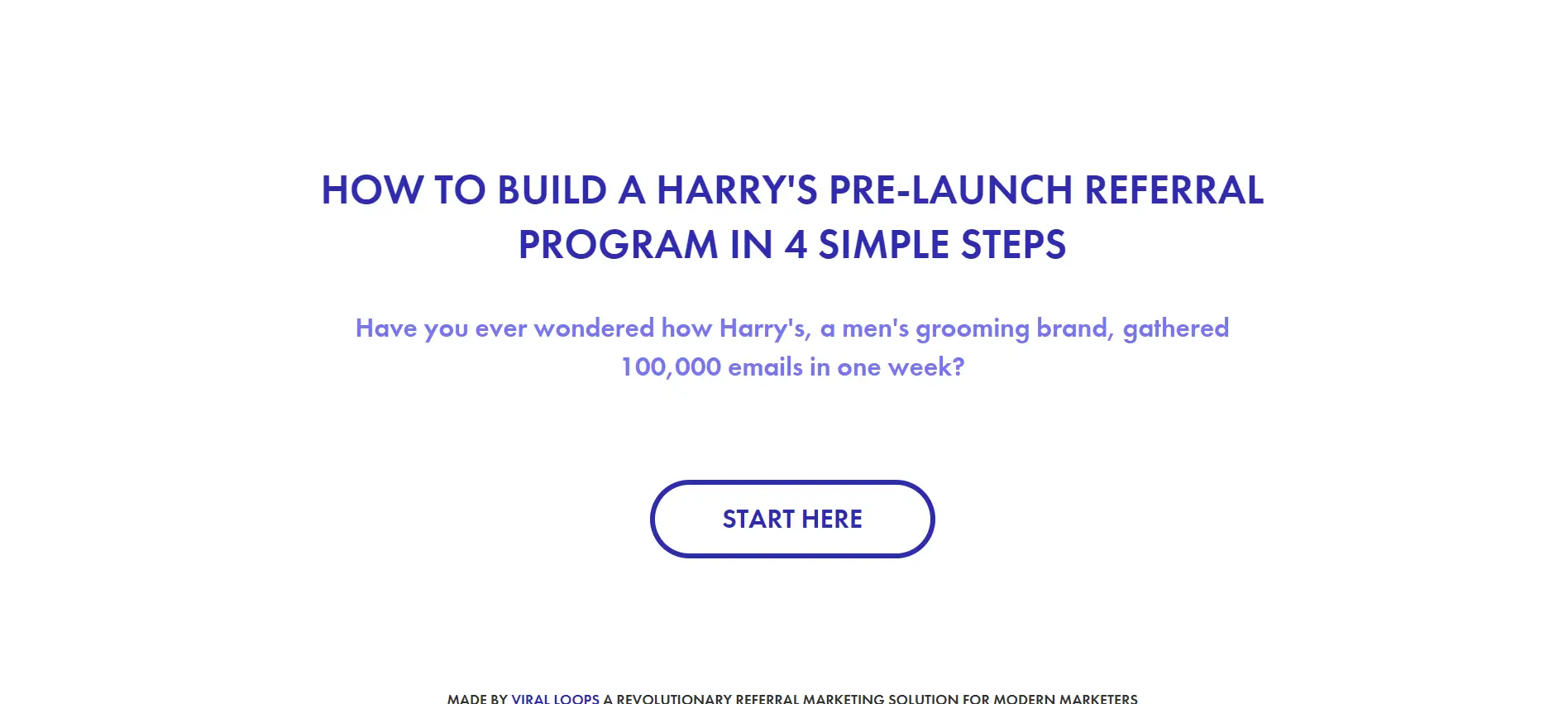
Offering exclusive access or VIP treatment can be a powerful incentive for customers to refer others. For example, you could offer early access to new products, exclusive discounts, or special events for customers who make successful referrals. This makes customers feel valued and appreciated, encouraging them to refer more people.
Encourage customers to post their referral links on various social media channels. You can make it easy for them by providing shareable content and graphics. Offering rewards for social media shares can help you reach a wider audience and increase the chances of getting more referrals.
Running referral contests and giveaways can create excitement and encourage participation. For example, you could enter customers into a prize draw for each successful referral they make. The prize could be something desirable, such as a high-value gift card or a popular product.
Example: Evernote’s referral program included a contest where users could earn points for each referral, which could then be redeemed for premium features and services. This gamified approach increased engagement and participation in their referral program.
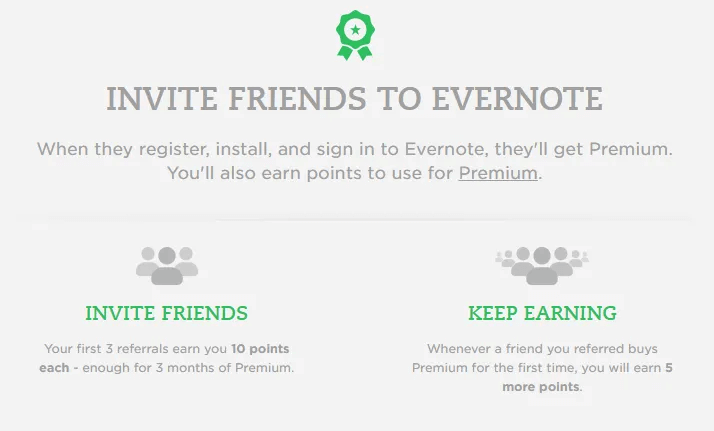
Collaborate with niche influencers to promote your referral program. Influencers have a strong fan base and can help you reach a larger audience. You can provide special referral codes or links to influencers, who can distribute them to their audience.
A referral program operates by utilizing existing customer relationships to attract new customers through referrals. The process typically involves a few key steps: enrollment, sharing referral links, referral actions, reward distribution, and monitoring and reporting. Here’s a more detailed look at each step:
Customers are invited to join the referral program. This can be done through various channels, including email invitations, website pop-ups, or during the checkout process. The key is to make the enrollment process simple and enticing.
Once enrolled, customers receive a unique referral link or code that they can share with their friends, family, or social media followers. This link is often personalized to track who referred whom.
When a new customer uses the referral link or code to make a purchase or sign up for a service, the referral action is recorded. This is typically tracked through the business’s CRM or referral software.
Businesses regularly monitor the effectiveness of their referral programs. Metrics such as conversion rates, the number of referrals, and the total effect on sales are monitored. This information helps in optimizing the program for improved results.

Building a successful referral program in 2024 requires careful planning and execution. Here are some strategies that will help you build an effective referral program:
Before you begin developing your referral program, you must first define your goals.. What do you want to achieve with the program? Are you trying to boost revenue, acquire new customers, or enhance customer retention? Having clear goals will help you design a program that meets your specific objectives.
It’s important to decide if your referral program is primarily designed to expand your new business or to maximize revenue generation. While these goals can complement each other, identifying a main focus is crucial from the start.
At this stage, it’s also beneficial to determine specific key performance indicators (KPIs) you’ll track during the marketing campaign to gauge its effectiveness. These could include metrics like customer retention rates, customer lifetime value, customer satisfaction scores, and return on investment. Defining goals is important as we use different KPIs to monitor performance.
The next crucial step is crafting your marketing message. For your campaign to succeed, you need a solid foundation of effective referral messaging. Essentially, referral messaging comprises the key details you convey to potential referees and their contacts. It includes the information that current customers and partners use to promote your products or services to their networks.
It’s vital to establish a clear and compelling brand message that accurately describes who you are, what you offer, and what your brand stands for. This message should be direct, engaging, easy to remember, and free from exaggerated claims to maintain your long-term credibility.
Once crafted, you can disseminate your referral messaging through various channels such as influencer collaborations, email campaigns, partner blogs, or social media platforms.
Choosing the right incentives is key to motivating customers to refer others. Consider offering rewards that are valuable and relevant to your audience. Common incentives include discounts, cash rewards, free products, or exclusive access to events. For example, double-sided rewards, where both the referrer and the referee receive a benefit, can be particularly effective. Additionally, tiered rewards that offer increasing levels of benefits based on the number of successful referrals can motivate customers to continue referring others. VIP treatment or exclusive access for customers who make successful referrals can also be a powerful incentive, making them feel valued and appreciated. Ensure that the rewards are enticing enough to encourage participation and resonate with your customer base.
The referral process should be simple and user-friendly. Customers should be able to refer to others with just a few clicks. Provide clear instructions and make it easy for customers to share their referral links via email, social media, or text messages. The easier the process, the more likely customers are to participate. You can achieve this with 99minds referral program software, which simplifies the implementation process and ensures that customers can effortlessly share their referrals. 99minds makes it easy to track, manage, and optimize your referral program, enhancing user experience and boosting participation.
Promoting your referral program effectively is crucial to its success. Ensure that information about your referral program is prominently displayed on your landing page. Remind customers about your referral program at checkout to capture their attention when they are already engaged with your brand.
Utilize email campaigns to let customers know about your referral program, providing clear details and easy-to-follow instructions. Mention your referral program on product packaging and in product descriptions to reach customers who are already using your products. Additionally, link to your referral program on social media platforms to maximize visibility and encourage sharing. By promoting your referral program across multiple channels, you can reach a wider audience and increase participation rates.
For an effective referral program, it’s important to track and analyze its performance. Analytics tools allow you to monitor key indicators such as the number of referrals, conversion rates, and their overall impact on sales. Analyzing this data helps identify what’s working and what needs improvement.
The 99minds referral program software is an ideal solution for this purpose as it provides accurate reports and insights to help optimize your referral strategy. Key KPIs (Key Performance Indicators) for a referral program include:
To continuously improve your referral program, utilize the data and feedback you receive to identify areas for enhancement. Experiment with different rewards, messaging, and promotional strategies to determine what resonates most with your target audience. Regularly update and refine the program to keep it relevant and engaging. By staying responsive to customer preferences and market trends, you can ensure your referral program remains effective and appealing, driving sustained growth and customer loyalty.
Providing excellent customer service is essential for the success of your referral program. Ensure that customers have a positive experience with your brand, as satisfied customers are more likely to refer others. Address any issues or concerns promptly and make the referral process as smooth as possible.
Rewarding customers for referrals can be done in several effective ways, tailored to fit your business model and appeal to your customer base. Here are some popular methods:
Looking at successful referral programs can provide valuable insights and inspiration for creating your own. Here are some examples of companies that have implemented effective referral programs:
Dropbox’s referral program is one of the most well-known examples of a successful referral program. Dropbox offered additional storage space to both the referrer and the referee for every successful referral. This simple yet effective incentive helped Dropbox grow its user base exponentially. The program was easy to use, and the reward was highly relevant to the product, making it a win-win situation for all parties involved.
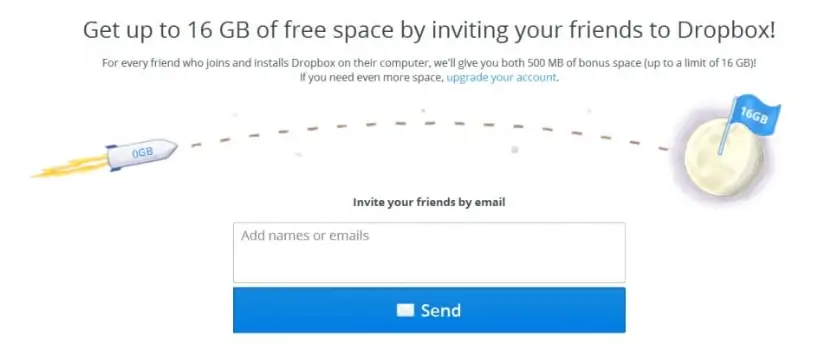
Airbnb’s Referral Program offers travel credits to both the referrer and the referee. When a new user signs up and completes their first stay, both parties receive travel credits that can be used for future bookings. This referral program not only helps Airbnb acquire new users but also encourages existing users to continue using the platform.
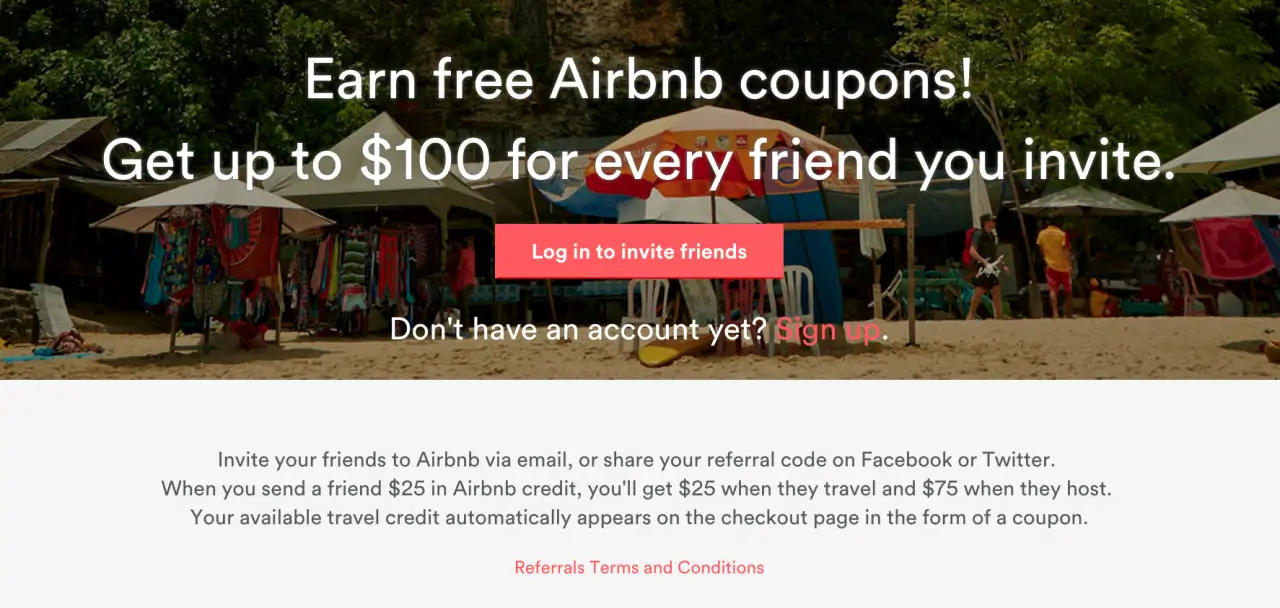
Verizon’s Referral Program offers rewards to customers who refer friends or family members to their services. By participating, both the referrer and the new customer can earn benefits such as discounts, gift cards, or bill credits. To join, customers can share a unique referral link or code. When the referred individual signs up and meets the program requirements, both parties receive their rewards, enhancing customer satisfaction and loyalty.
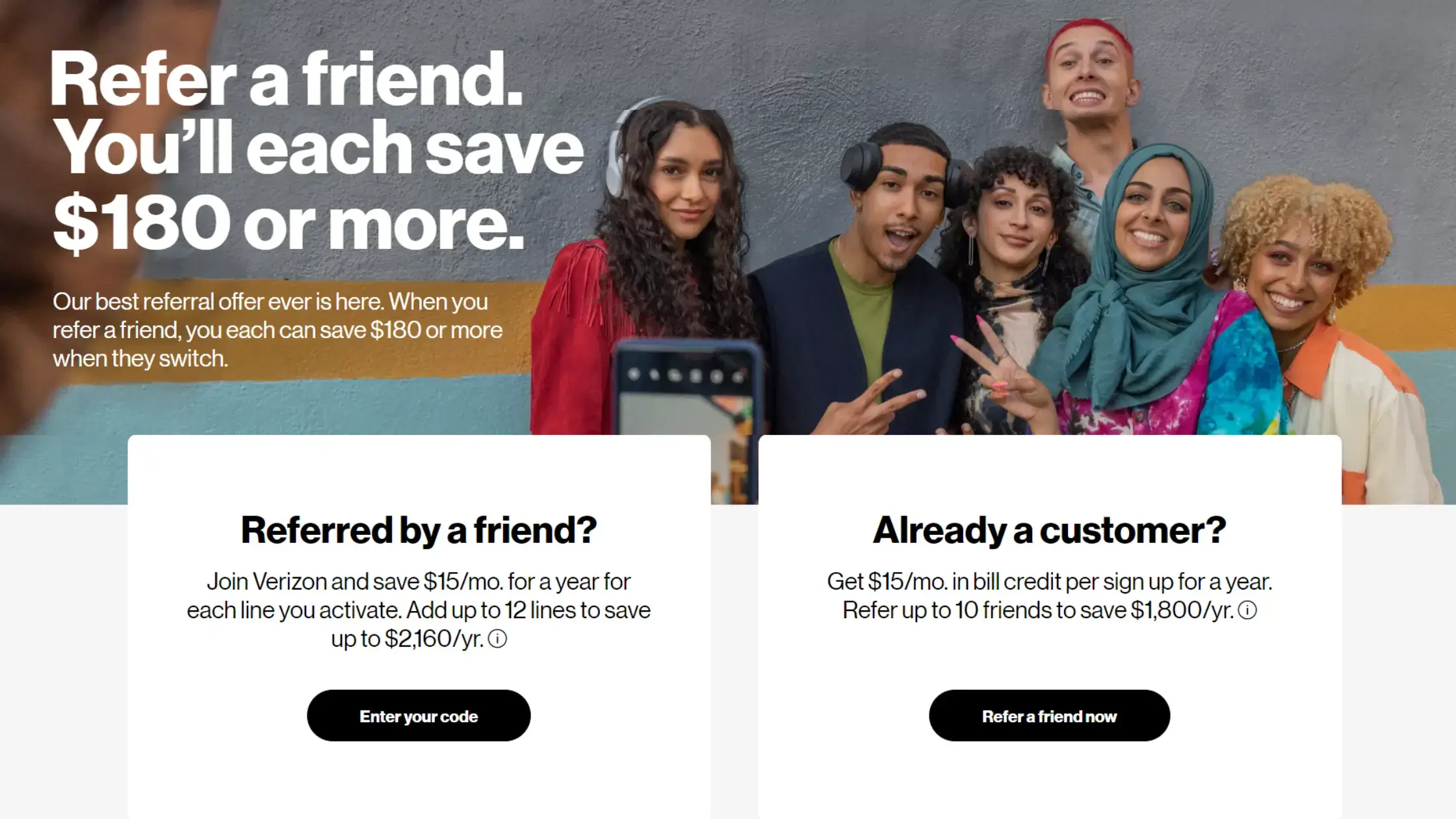
Casper’s Referral Program rewards customers for referring friends or family to their products. When a customer shares their unique referral link and a friend makes a purchase using that link, both the referrer and the friend benefit. Typically, the referrer receives a discount or credit toward future purchases, while the friend enjoys a discount on their first order, making it a win-win situation for both parties.

PayPal’s Referral Program offers cash rewards to users who refer others. When a new user signs up and completes a qualifying transaction, both the referrer and the referee receive a cash reward. This program helped PayPal rapidly expand its user base in its early days and establish itself as a leading online payment platform.
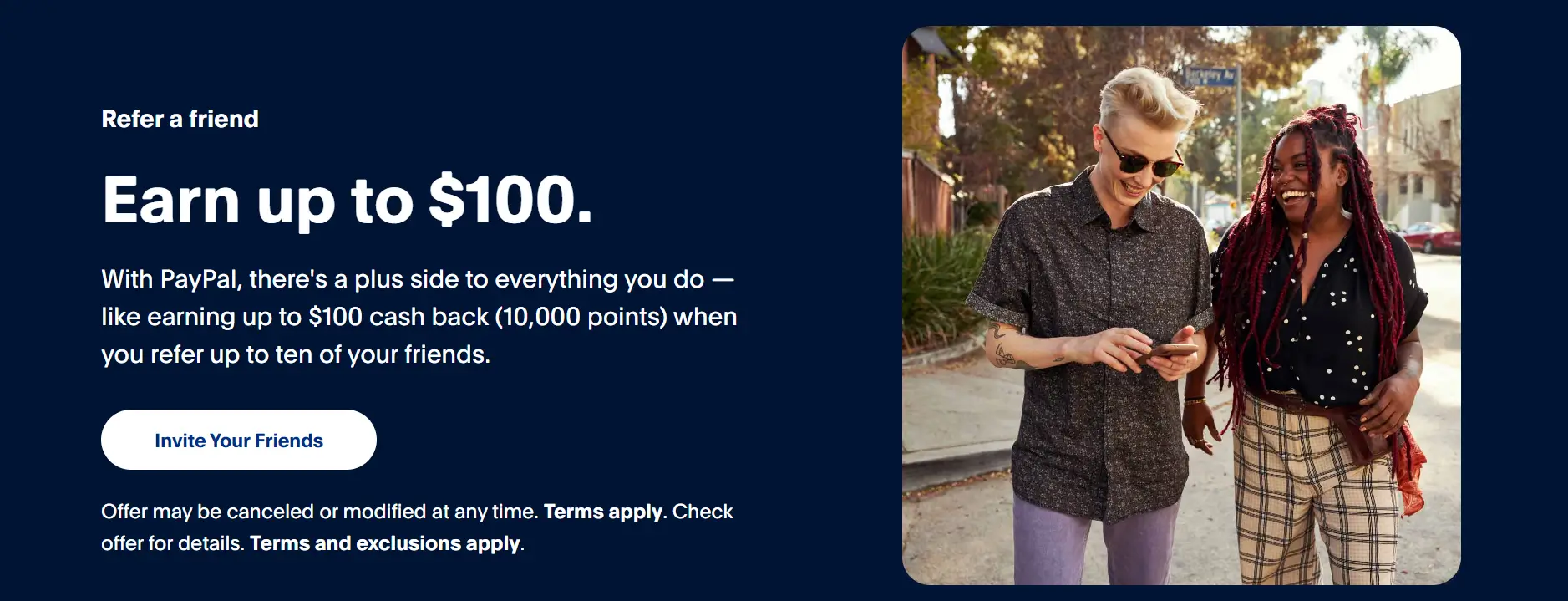
Referrals for your ecommerce business can be a boon. However, building the tech to run a referral program can be tricky. The best way to go about it is to use referral program software that can help you create and manage a successful referral program. Here’s how you can build a customer referral program with 99minds:
99minds offers an easy-to-use interface that allows you to set up your referral program quickly. You can customize the program to fit your brand’s needs and goals.
You can create customizable rewards that resonate with your customers. Whether you want to offer discounts, free products, or exclusive experiences, 99minds provides the flexibility to design a program that motivates your customers.
99minds automates the referral process, from generating unique referral links to tracking referrals and distributing rewards. This ensures a seamless experience for both you and your customers.
Get real-time analytics that allows you to monitor the performance of your referral program. You can track key metrics, such as the number of referrals, conversion rates, and customer engagement, to make data-driven decisions.
99minds integrates with various eCommerce platforms, CRMs, and marketing tools, making it easy to incorporate the referral program into your existing systems. This ensures a cohesive customer experience across all touchpoints.
Get dedicated support to help you throughout the setup and management of your referral program. Solution experts provide guidance and assistance to ensure your program’s success.
Referral programs are a powerful marketing tool that can help businesses acquire new customers, increase sales, and build brand loyalty. By leveraging the trust and influence of existing customers, businesses can create a sustainable and cost-effective customer acquisition strategy.
To create a successful referral program, it’s essential to define your goals, understand your target audience, choose the right incentives, create a seamless referral process, promote the program, track performance, and continuously optimize. By looking at successful examples from companies like Dropbox, Airbnb, Uber, Tesla, and PayPal, you can gain valuable insights and inspiration for designing your own referral program.
In 2024, Referral programs remain pivotal for marketing success, offering a competitive edge through word-of-mouth marketing. Enhance your efforts with the 99minds referral program, optimizing performance and driving growth seamlessly.